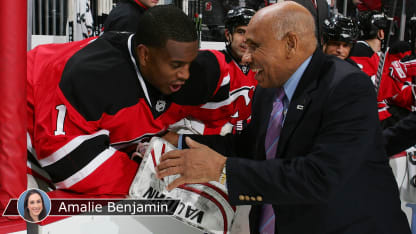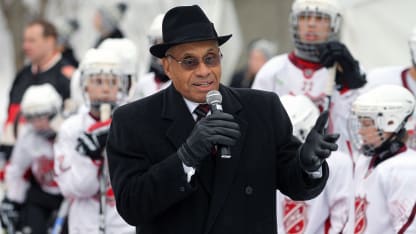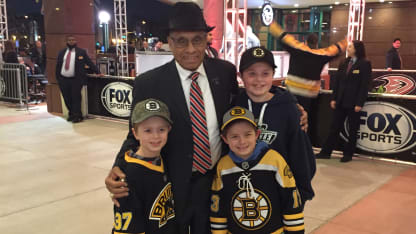By the time Weekes made his NHL debut with the Florida Panthers in 1997, O'Ree's story had an even greater influence on him, especially "having the opportunity to do different events with him and see how passionate he was - you can still see how passionate he is - how energetic he is, how much he wants to inspire a lot of the boys and girls."
He saw how O'Ree's story became tangible to those boys and girls, as they were able to talk to him, to ask him questions. For them, O'Ree, who played 45 games over two seasons with the Boston Bruins, is not a story. He's a person. For Weekes, that makes it more profound.
"He's got so much energy," Weekes said. "He's got a young spirit. He was even saying today, 'I can't believe it's 60 years. I can't believe it's 60 years.' But he's up and he's about. And as he said when he was talking there in that address, in about three or four months he'll get back on the ice. He loves being in the rinks. He loves interacting with parents and kids and trying to inspire them to play the game."
Because, to Weekes, it isn't just about black players. It's about what O'Ree means to everyone, to being inclusive of everyone, boys and girls, black and white, in unconventional hockey markets like California and traditional markets like Boston.
"I've been really blown away by just how gracious he's been, how humble he's been, in spite of all that he's accomplished," Weekes said, "how he continues to inspire not only a lot of other people of color or black people, but just people in general and just be such a strong advocate for the game. It's a Saturday afternoon and he's here in Milton, Massachusetts, just spreading the word of hockey."




















